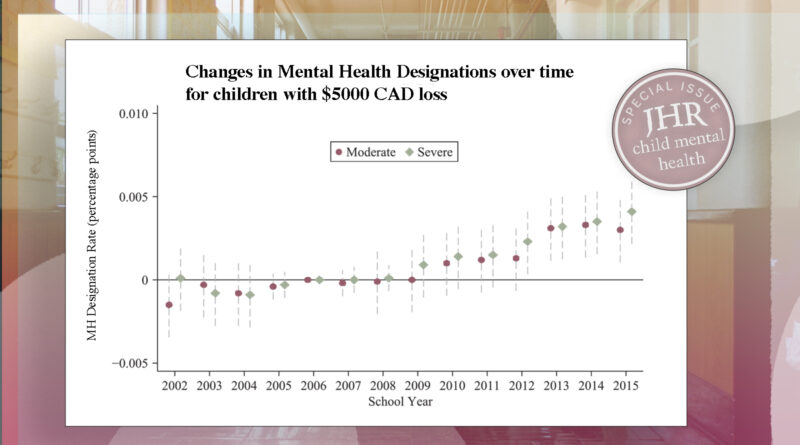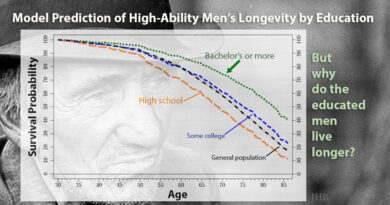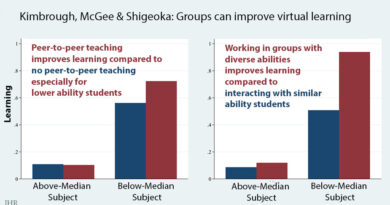Drops in Family Income Trigger Children’s Mental Health Challenges at School
Nearly one in five Canadian and American children suffer from mental health challenges, but relatively little is known about what triggers them. Using new Canadian school data linked to parent tax records, researchers Lauren Jones, Mark Stabile, Kourtney Koebel, and Jill Furzer explore how drops in family income during recessions relate to children’s mental health challenges at school.
In their study, researchers followed over 170,000 children in British Columbia between 2002 and 2015. They compared rates of in-school mental health designations between children whose parents lost income during the 2009 recession versus children whose parents’ income did not drop. Mental health designations occur when a student’s mental health and behavioral symptoms require additional support at school.
They found that children with drops in household income were 20 percent more likely to receive an in-school mental health designation. For children in this group, rates of designations for both moderate and severe conditions rose. Kids younger than 11 at the onset of the recession continued to experience higher rates of mental health designations as late as 2015, six years after the height of the recession.
This study provides new findings about how household financial difficulties affect children’s mental health. It uses a large sample where researchers can track both mental health and income from administrative rather than self-reported sources. Children whose families experience financial hardships are at risk of developing mental health and behavioral symptoms that disrupt their learning. These findings emphasize the importance of a strong safety net to support families during periods of financial distress.
Read the article in the Journal of Human Resources: “The Effect of Household Earnings on Child School Mental Health Designations: Evidence from Administrative Data” by Lauren Jones, Mark Stabile, Kourtney Koebel, and Jill Furzer.
***
Lauren E. Jones is an associate professor in the Glenn College of Public Affairs at The Ohio State University (@ProfLaurenJones). Mark Stabile is the James M. and Cathleen D. Stone Distinguished Chair in Wealth Inequality and Professor of Economics at INSEAD and CEPR (@StabileMark). Kourtney Koebel is a postdoctoral fellow in the Department of Economics and the Institute for Gender and the Economy at the University of Toronto. Jill Furzer is a Senior Economist at Keystone Strategy (@jefurzer).




